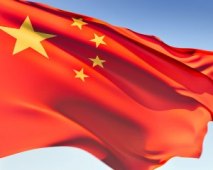 World Bank has cautioned China that an expected slowdown next year could hit its export driven economy and asked it to accelerate process to change its economic growth pattern to increase the domestic consumption.
World Bank has cautioned China that an expected slowdown next year could hit its export driven economy and asked it to accelerate process to change its economic growth pattern to increase the domestic consumption."In China we see a quite different economic growth pattern this year and last because of both domestic and external reasons," said Ardo Hansson, lead WB economist in China while releasing a quarterly report on Chinese economy.
While edging up China's gross domestic product growth projection for both 2010 and 2011, the report said that growth in domestic demand would remain strong although exports could suffer from a predicted global economic slowdown next year.
The report raised its forecast for China's year-on-year GDP growth for 2010 to 10 per cent from 9.5 per cent and that for 2011 to 8.7 per cent from 8.5 per cent.
"The expected slowdown in global growth is likely to affect China's exports," official media in Beijing quoted the report as saying adding that consumption would benefit from a robust labour market and private sector investment.
China's retail sales, a measure of domestic demand growth, expanded by about 18 per cent in recent months, compared to about 15 per cent a year earlier.
China, which has emerged this year as the second largest economy of the world, has taken a slew of measures
"The need to rebalance to a more domestic demand-led, service-sector oriented growth seems stronger now than five years ago, in part because the international environment is less favorable."
Zhou Xiaochuan, the central bank governor, said on Tuesday that the economy's structure would witness substantial and profound changes during the next five years, as the country focuses on stimulating domestic demand.
Accelerating urbanisation would bring more demand for non-export categories such as healthcare and education, he said, adding that the focus of investment would also change to the service sector from more traditional areas.
"China could make substantive changes to its economic structure in three years and substantially reduce its reliance on external demand," Li Daokui, a member of the monetary policy committee of the central bank, at an October 29 forum.











 © 2025
© 2025